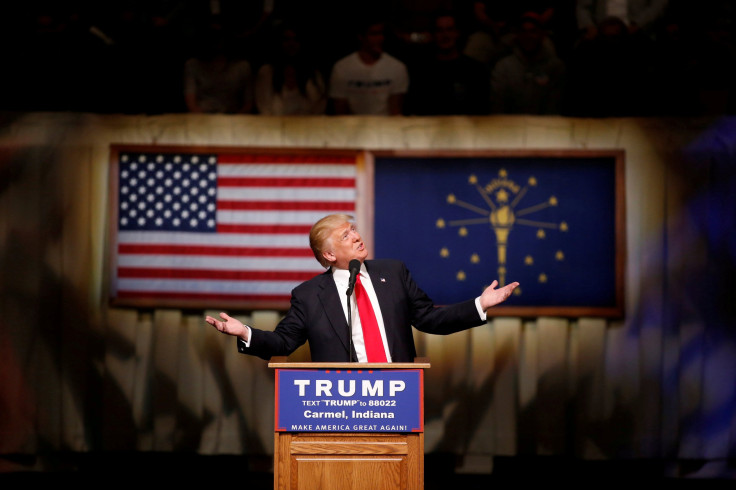Who Is Steven Mnuchin? Donald Trump's Finance Chair Made Billions Off The 2008 Financial Crash

Donald Trump likes to brag about self-funding his presidential campaign, but as the race moves into the general election, the billionaire may be heading to the same well that candidates have drawn from for decades.
Days after Trump’s decisive primary win in Indiana, his campaign indicated that it was growing. Team Trump has added a finance chair: Steven Mnuchin, the founder of a private equity firm that received a government-funded jackpot after the 2008 housing collapse.
Mnuchin, a former partner at Goldman Sachs, heads up Dune Capital. The investment firm put together a holding company in 2008 — attracting investors like J.C. Flowers, a George Soros investment fund and Paulson & Co. — that then bought up $32 billion worth of IndyMac bank assets for the cut-rate price of $13.9 billion. Renaming the bank OneWest, Mnuchin’s consortium invested $1.3 billion and got the Federal Deposit Insurance Corporation to assume responsibility for the majority of future losses. The FDIC lost an estimated $8.5 billion to $9.4 billion in the deal — while the holding company made money with the taxpayer-subsidized set-up.
“Steven is a professional at the highest level with an extensive and very successful financial background,” Trump said in a statement accompanying the announcement. “He brings unprecedented experience and expertise to a fundraising operation that will benefit the Republican Party and ultimately defeat Hillary Clinton.”
Aside from OneWest — which last year made $3.4 billion and has issued $2 billion in dividends to shareholders, according to Mother Jones — Dune is known for its holdings of public pension fund money. Private equity firms have been paid billions in fees from state pensions, and the financial institutions now receive roughly one-third to one-half of their new capital each year from the nation’s public pension system.
“As pension funds come under increasing pressure to meet their liabilities, or payments, private equity funds are sharpening their claws to get at even more from these public funds to accommodate them,” Nomi Prins, a senior fellow at the liberal think-tank Demos, former managing director at Goldman-Sachs and former senior managing director at Bear Stearns, wrote in 2012. “For pension funds, accepting high fees and more risk is like doing a dance with the devil.”
Pension funds, including the State University Retirement System of Illinois, have invested millions into Dune Capital. SURS invested as much as $40 million in a Dune real estate fund in 2008 and followed up with another $100 million in 2013. The Oklahoma Firefighters Pension and Retirement Board, too, has considered investing millions into the company.
More and more pensions are now considering divesting from hedge funds and private equity firms. In April, New York City’s pension fund voted to drop its $1.5 billion investment in hedge funds, citing high fees, riskiness and lagging performance. In 2014, the California Public Employees’ Retirement System announced that it would pull its $4 billion from hedge fund investments, a move against the high fees.
© Copyright IBTimes 2024. All rights reserved.






















